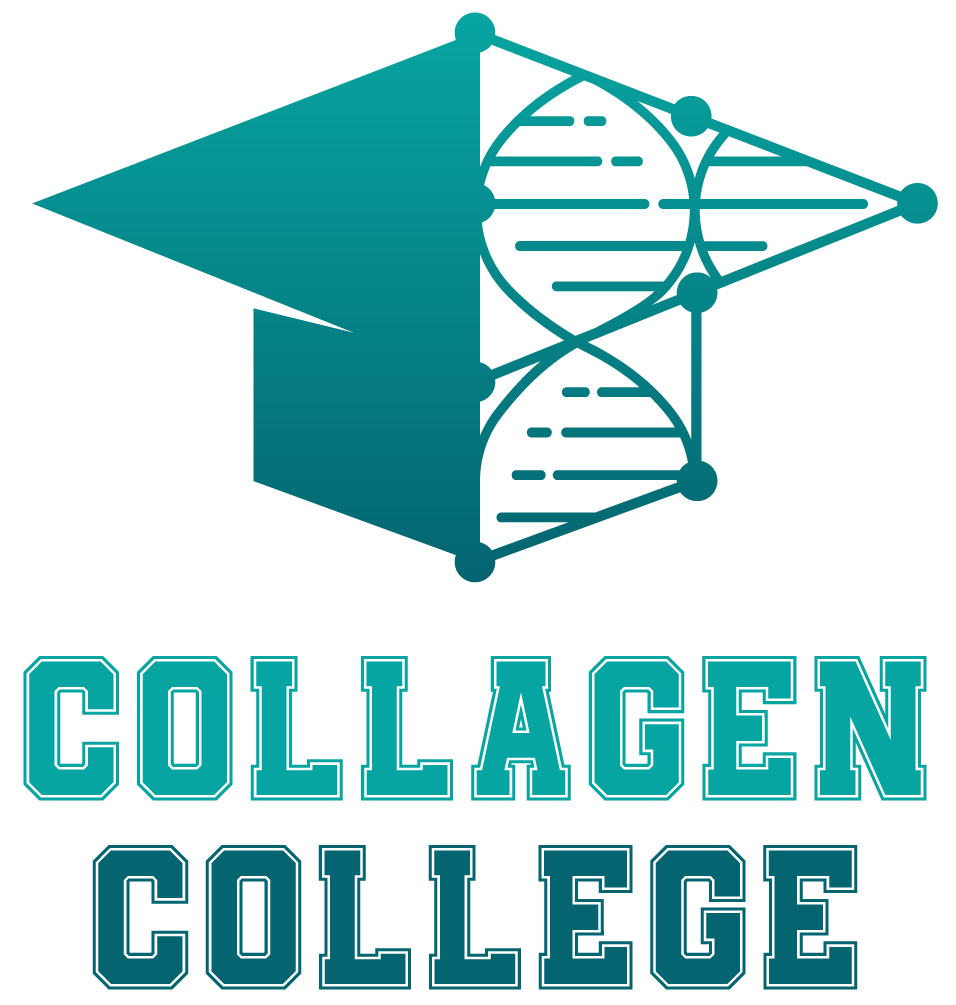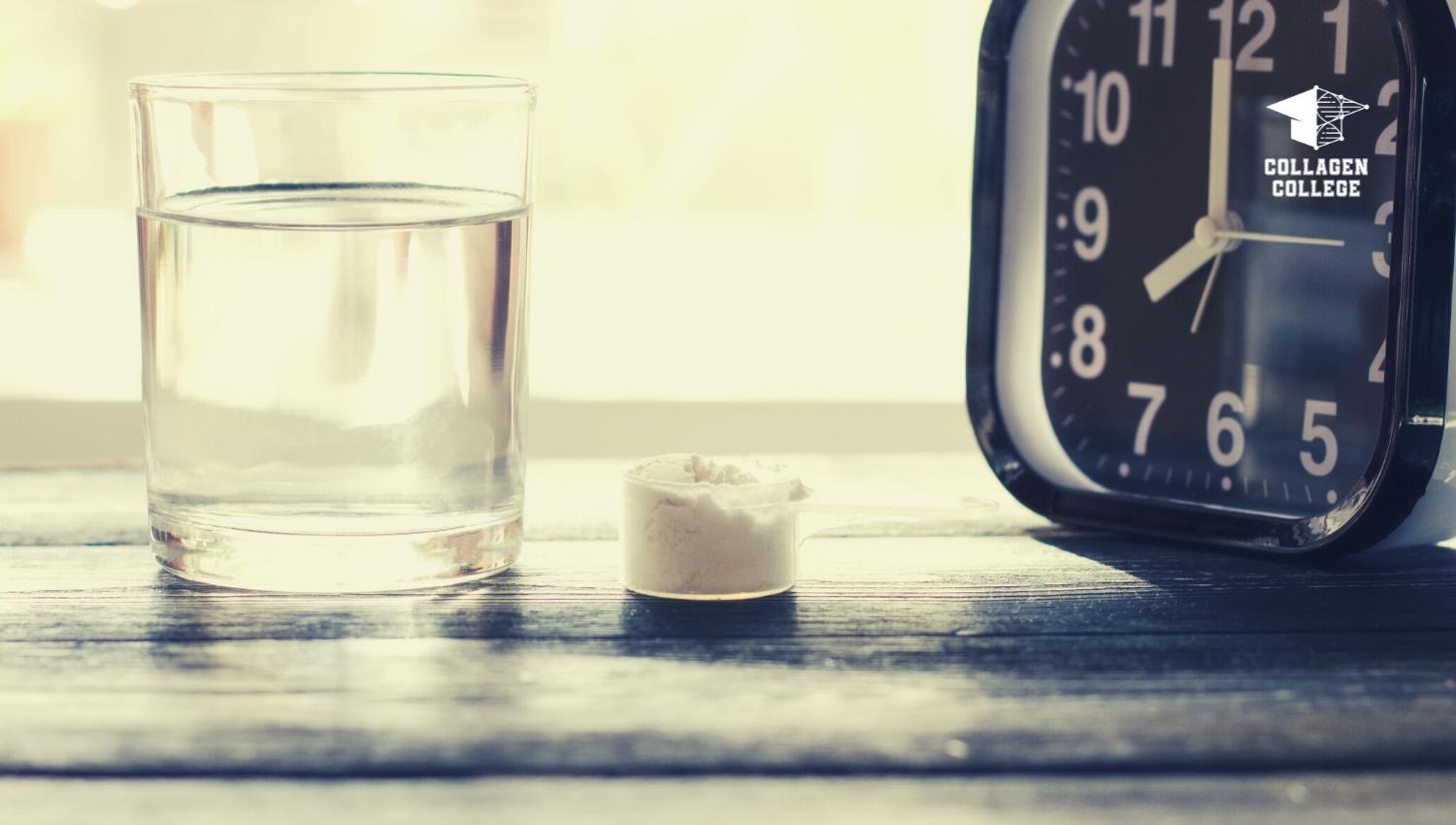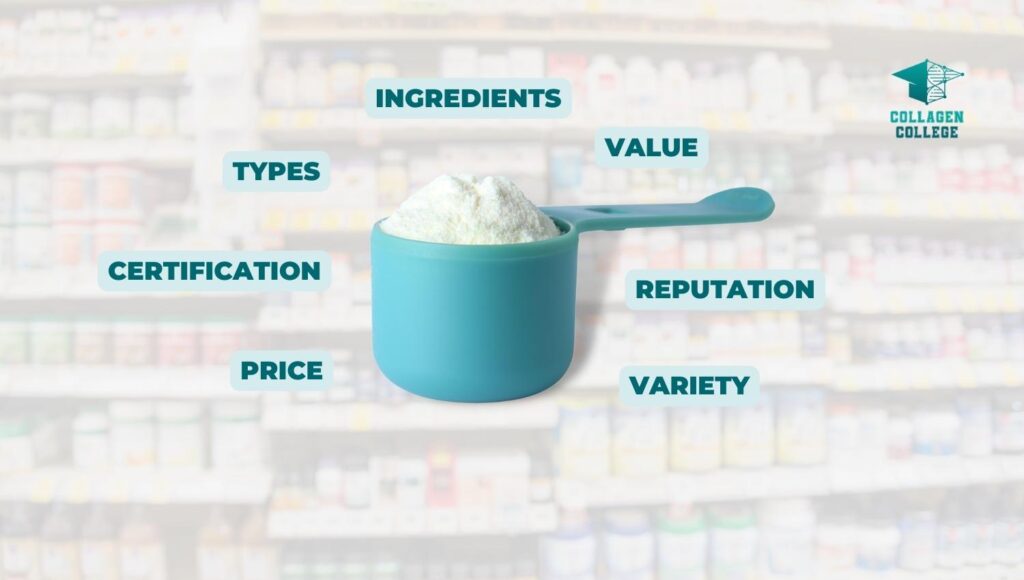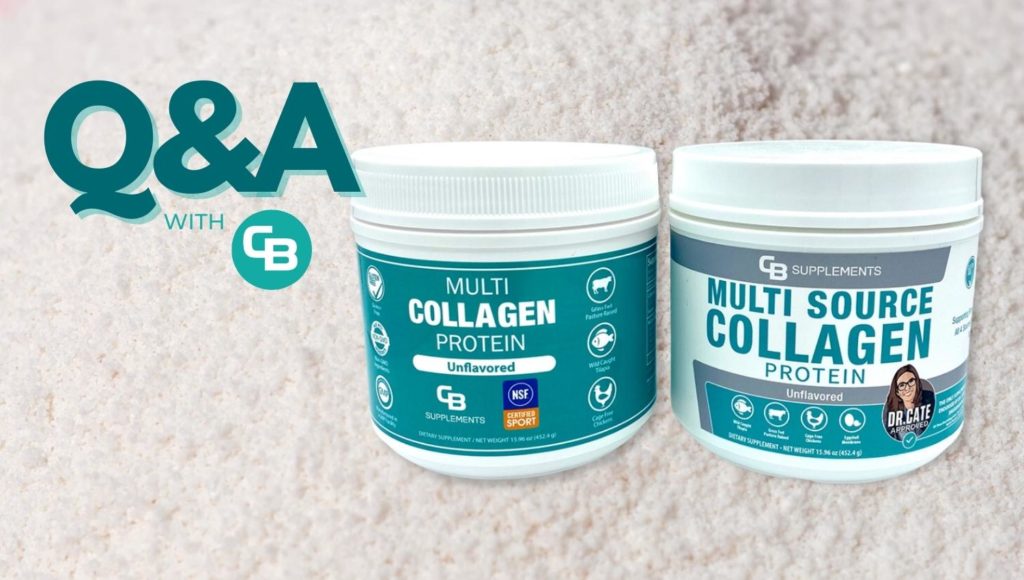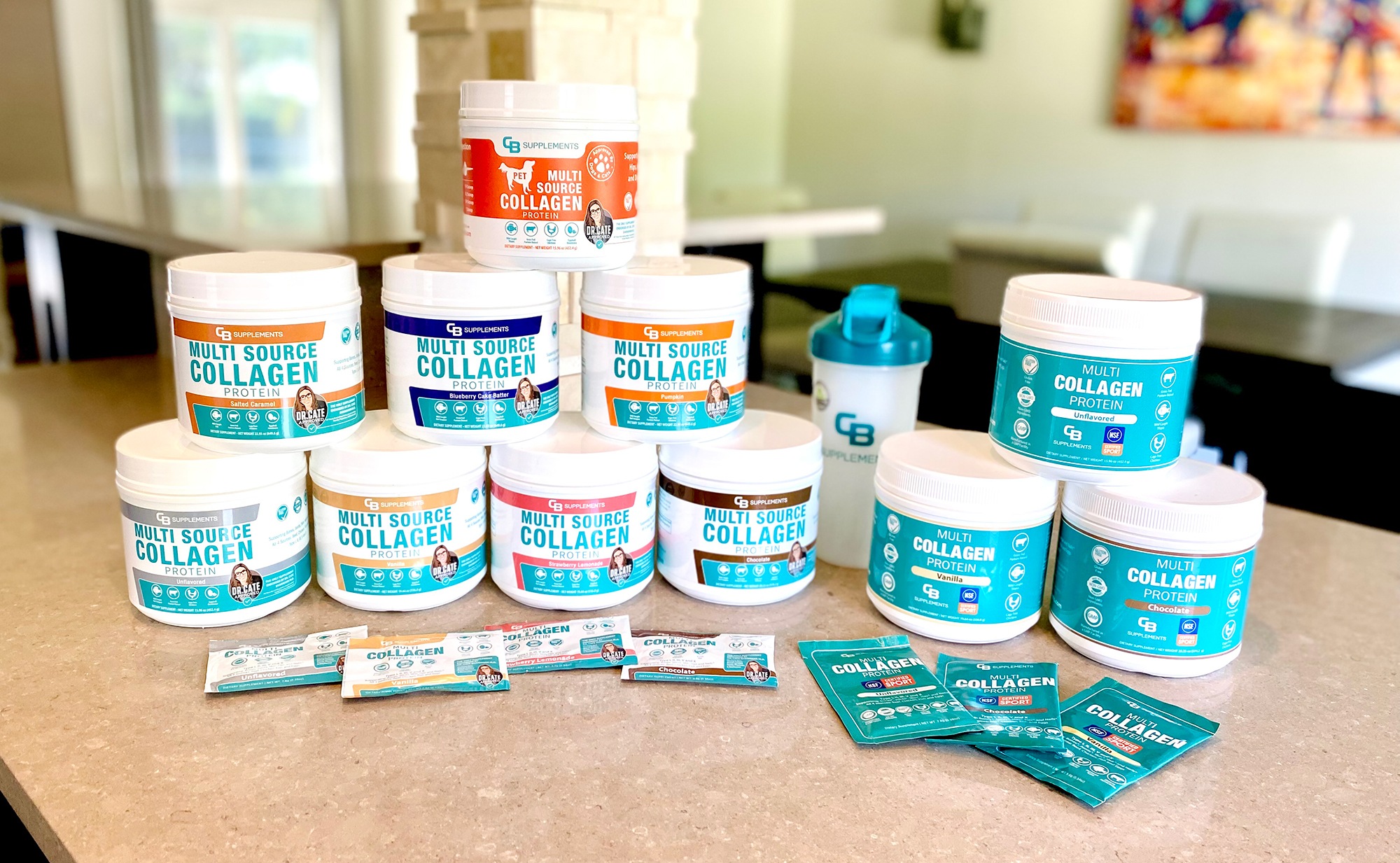When should you start taking collagen? Curious if you’re too young? Too old? Is it too soon or too (*gasp*) late?
Though it may seem these questions about age and collagen consumption require the Pythagorean theorem, it’s really not complicated. Sorry math nerds. You’re here because you’re wondering when you should start taking collagen, and the answer is pretty simple.
The default answer: 25-30 years old

When should you start taking collagen?
As we explored in the pros and cons of taking collagen, most sources (including us) talk about needing more collagen when you hit your mid-20s. Why? Because studies prove that once you reach 25-30, your body starts producing less collagen (thank you aging process). You’ll only lose a small amount at first, but by the time you’re 40, it could be 1% per year. And it continues to get worse. Collagen loss is one of the ugly truths of aging.
We ain’t trying to scare ya, we trying to prepare ya.
This isn’t a scare tactic (though many would argue you should be scared!) We’re simply offering a PSA. You shouldn’t ever wait to start eating foods high in collagen and/or using a high-quality collagen supplement.
Everyone, at any age, can benefit from collagen consumption. Of course the older you get, the more you’ll need to compensate for ongoing and continually increasing collagen loss.
- 2 to 25? Start “banking your collagen” (more on this below)
- 25? Start taking collagen!
- 40? Start taking collagen!
- 60? Start taking collagen!
- 100? You get the idea.
Start now, no matter what age you are.
Is there a minimum age limit for taking collagen?

You’ll notice above that we outline up to 25 years old — the age before your collagen production engine starts to sputter — and start at 2 years old.
Why are we starting with 2? Why not sneak some collagen powder into your newborn or infant’s milk bottle? (fun fact: our founder, Charlie, has done this with all of his kids!)
Though it’d probably be harmless to give your newborn or infant collagen powder (they wouldn’t taste or smell it since our unflavored multi collagen peptides powder is fantastic!), we’d simply err on the side of caution and wait till they hit that 2nd birthday.
Then, once at toddler or pre-school age, start sneaking collagen powder into their juice, milk, smoothie, cookies, muffins, pasta, pancakes, and more. See our collagen recipes for specific ideas! One of our favorites is the No-Bake Collagen Cookie Dough Bites. Our chocolate collagen powder also makes the healthiest chocolate milk in the world — YUM!
Is there a maximum age limit for taking collagen?

Once seniors reach the age of 65-70, collagen production starts to decline at about 30% per year.
But, it’s never too late for collagen!
Collagen is absolutely for seniors 55+. Data shows that those 55+ see dramatic benefits from collagen across the board — especially in their bones, joints, and overall inflammation.
Go read our reviews, you’ll find numerous anecdotal testimonies from those 55+ where “miracles” of aches, pains, and numerous ailments simply disappeared after collagen consumption.
Now, let’s return to the other side of the spectrum and address those between the ages of 2 to 25.
“Banking Your Collagen”

We get this question often when it comes to talking about age and collagen consumption:
If collagen production doesn’t start slowing till age 25-30, why should someone younger care about taking collagen?
In theory, the question has much rationale. Why would a toddler, pre-schooler, school age, or teenager/adolescent need collagen if their bodies already have enough?
In our Collagen for Kids Guide to Safety & Tips, Dr. Cate, M.D., and I discussed the crux to collagen deficiency. We don’t eat the way we used to, unfortunately. Foods loaded with collagen such as bone broths, organ meats, skin, etc. are not being consumed. Those fried chicken fingers, curly fries, and milkshake ain’t cuttin’ it.
You need as much collagen as you can while you’re young. Think of it as banking your collagen! Dr. Cate, M.D.
Unless you grew up eating tripe and drinking bone broth regularly, your body is starving for more collagen way before you hit your mid-20s. And eating more collagen (remember, collagen is food!) makes more collagen in our bodies.
Why it’s OK to take Collagen at any Age
Spoiler alert: we think collagen is awesome. 🙂 Dr. Cate, M.D. believes it’s a missing food group from everyone’s diet.
Start with getting nutrition (including collagen) from food first, then supplement. In that order. If you need to supplement and let’s be honest, we all lead busy lives and need some convenience, a collagen supplement is an excellent way to feel the benefits of collagen supplementation quickly and easily.
Here’s why it’s OK to take collagen at any age after 2:
- Collagen protein is just amino acids. It’s the basic building blocks of protein. And collagen makes up 1/3 of our body’s protein composition — no matter what age! Learn more about collagen’s amino acid profile.
- Collagen is extremely durable. Unlike most supplements, much isn’t lost in the process of making collagen peptides. Collagen supplements, by nature of the collagen molecule’s durability, are set up for success and will have a favorable impact at any age group.
- An allergy and/or intolerance would rarely be triggered. Unless there’s a life-threatening allergy to beef, chicken, fish, or eggshell membrane — you’ll be in the clear. See the ingredients of multi collagen.
- Versatility in taking collagen. There are numerous ways to take collagen powder. It’s incredibly easy to work into your day. Kids will love collagen-infused pancakes, adults will enjoy adding a scoop of collagen into their coffee or tea.
Simply put, collagen is for everyone from kids & teenagers to seniors, athletes, and even your beloved pet (don’t miss our collagen for dogs guide).
Supplement quality is important, regardless of age!
This probably goes without saying, but just like choosing high-quality foods in your grocery store, the same could be said about choosing a high-quality collagen supplement.
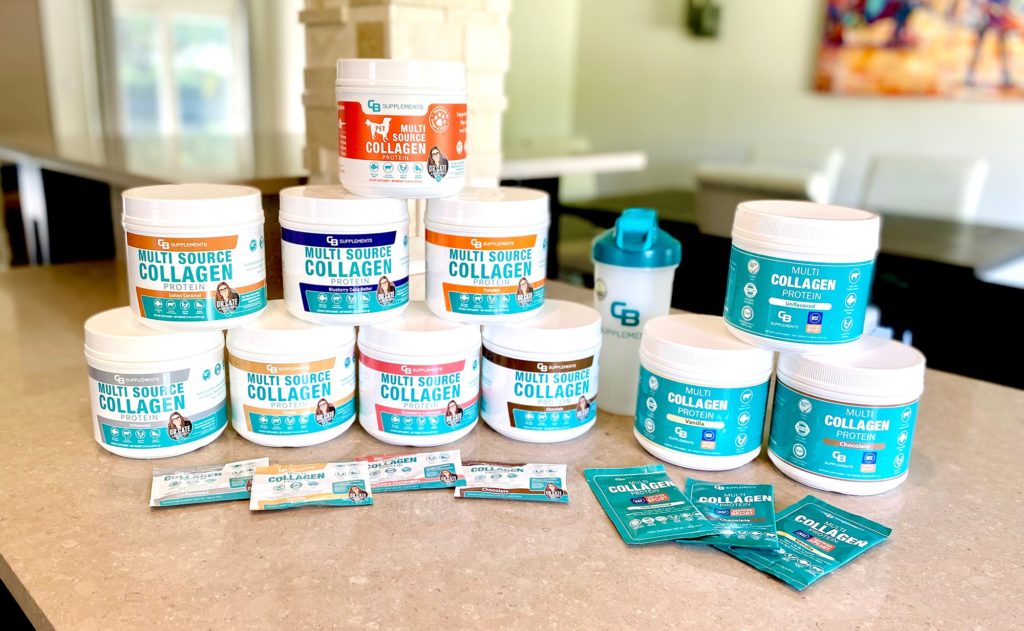
Everyone, at any age, should demand safety and quality.
Here are 9 things to look for in a collagen powder, including third-party certification (we offer a product line dedicated to NSF certified collagen), GMP certification, and heavy-metal testing.
I’ll end with this.
Asking yourself, “When should I start taking collagen?” could be one of the most important questions you ask as you continue your health journey — no matter your age. We applaud you for being here and seeking ways to improve your overall health for you and those around you.
